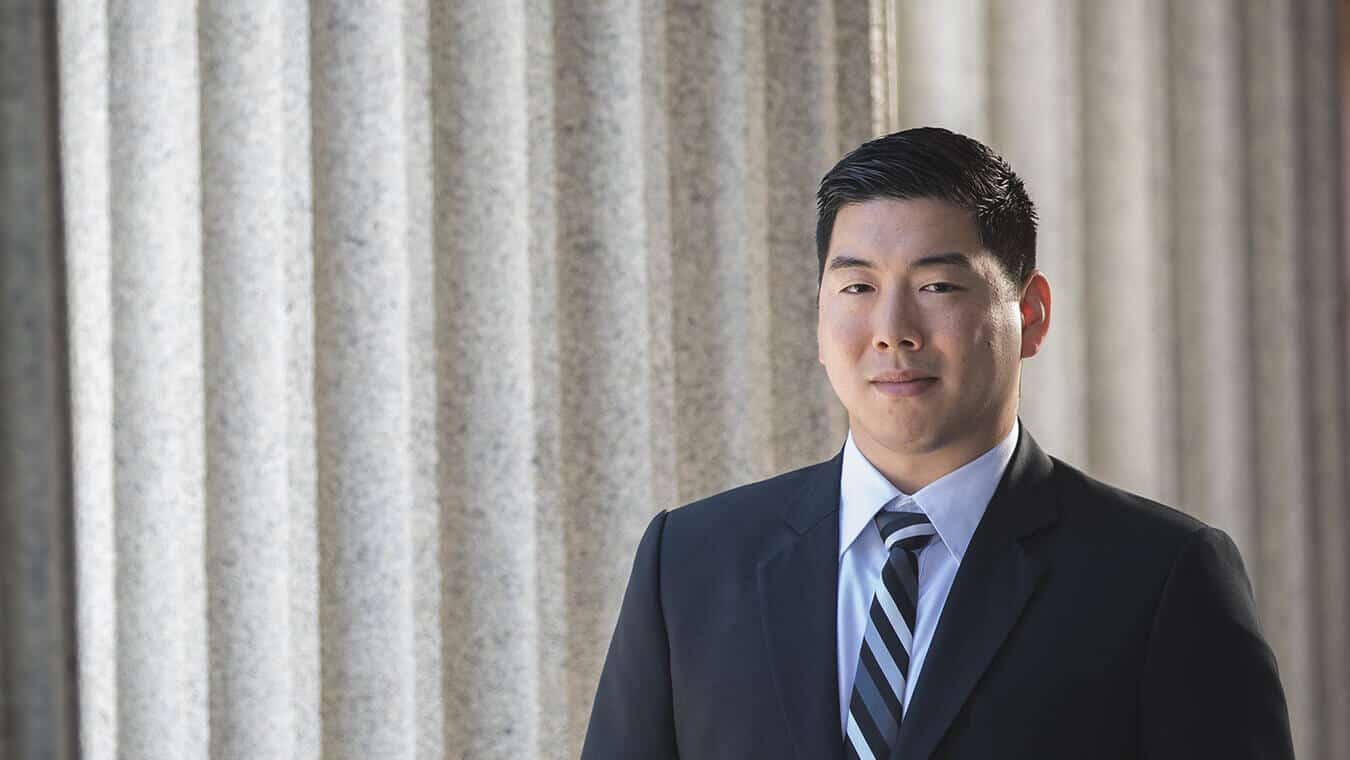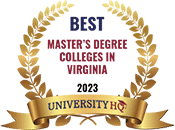
M.A. in Communication – Political Communication
Passionate About Political Communication? Make a Career of it.
Whether you want to be a press secretary, the communications director of a political campaign, or a public relations director, our Master of Arts in Communication – Political Communication is for you. It will equip you to produce effective communication within the political environment of the American government. Based on a Christian foundation, this online political communication degree will teach you how to respond quickly and accurately in complex situations as a principled media representative.
Increase Your Influence
Advance in leadership roles with higher salary potential.
Expand Your Government & Communication Knowledge
Deepen your understanding of policies, politics, crisis management, and more.
Enhance Your Strategic Messaging Skills
Design strategies to address public opinion regarding political and social issues.
Please complete the Request Information form on this page to learn more about this program.
On completing the master’s in Communication – Political Communication degree, you can:
- Leverage modern campaigning tools to increase political engagement.
- Apply research and analysis skills to evaluate public opinion.
- Apply policies and procedures to reduce and respond to crises.
Career Opportunities
- Media spokesperson
- Press secretary
- Campaign press corps member
- Public relations director
- Political aide
- Lobbyist
2023-24 Semester Check-In Deadlines
All students are expected to check-in for the semester two weeks before the session start date. Students should apply, be accepted, enroll in their first courses, and confirm a plan to pay for their courses prior to this date.
| Session | Semester Check-In | Session Start Date |
|---|---|---|
| Session A | Friday, August 11 | Monday, August 21 |
| Session M | Friday, September 8 | Monday, September 18 |
| Session B | Friday, October 13 | Monday, October 23 |
| Session C | Thursday, January 4 | Monday, January 8 |
| Session T | Friday, January 26 | Monday, February 5 |
| Session D | Friday, March 1 | Monday, March 11 |
| Session E | Friday, April 26 | Monday, May 6 |
| Session F | Friday, June 7 | Monday, June 17 |
Admissions Requirements
Step 1: Apply to Regent University
Submit your application using the Regent University Online Application.
Note: If you are unable to complete our application due to a disability, please contact our Admissions Office at 757.352.4990 or admissions@regent.edu and an admissions representative will provide reasonable accommodations to assist you in completing the application.
Step 2: Submit Your Unofficial Transcripts
Submit your unofficial transcripts to regent.edu/items.
Upon submitting your application, you will receive an email requesting authorization for Regent University to obtain your official transcripts from your U.S. degree-granting institution. International transcripts must be evaluated by a NACES, AACRAO or NAFSA approved agency.
Step 3: Submit Your Government-Issued ID
To ensure academic integrity, Regent University requires a copy of a government-issued ID. Please submit a scanned copy or photograph of it to regent.edu/items.
Please feel free to contact the Office of Admissions at 757.352.4990 or admissions@regent.edu should you have any further questions about the application process.
Note: All items submitted as part of the application process become the property of Regent University and cannot be returned.
Part-Time Students
| Degree | Tuition Cost Per Credit Hour | Average Credit Hours Per Semester | Average Tuition Per Semester |
|---|---|---|---|
| Master of Arts (MA) | $670 | 6 | $4,020 |
| Master of Fine Arts in Film & Television Production (MFA) | $670 | 6 | $4,020 |
| Master of Fine Arts in Screenwriting (MFA) | $670 | 6 | $4,020 |
| Master of Fine Arts in Acting (MFA) | $920 | 6 | $5,520 |
| Doctor of Philosophy in Communication (PhD) | $950 | 3 | $2,850 |
| Doctor of Strategic Communication (DSC) | $950 | 3 | $2,850 |
Full-Time Students
| Degree | Tuition Cost Per Credit Hour | Average Credit Hours Per Semester | Average Tuition Per Semester |
|---|---|---|---|
| Master of Arts (MA) | $670 | 9 | $6,030 |
| Master of Fine Arts in Film & Television Production (MFA) | $670 | 9 | $6,030 |
| Master of Fine Arts in Screenwriting (MFA) | $670 | 9 | $6,030 |
| Master of Fine Arts in Acting (MFA) | $920 | 9 | $8,280 |
| Doctor of Philosophy in Communication (PhD) | $950 | 6 | $5,700 |
| Doctor of Strategic Communication (DSC) | $950 | 6 | $5,700 |
Student Fees Per Semester
| University Services Fee (On-Campus Students) | $850 (Fall & Spring) $700 (Summer) |
| University Services Fee (Online Students) | $700 |
PART-TIME STUDENTS
| Degree | Tuition Cost Per Credit Hour | Average Credit Hours Per Semester | Average Tuition Per Semester |
|---|---|---|---|
| Master of Arts (MA) | $670 | 6 | $4,020 |
| Master of Fine Arts in Film & Television Production (MFA) | $670 | 6 | $4,020 |
| Master of Fine Arts in Screenwriting (MFA) | $670 | 6 | $4,020 |
| Master of Fine Arts in Acting (MFA) | $920 | 6 | $5,520 |
| Doctor of Philosophy in Communication (PhD) | $950 | 3 | $2,850 |
| Doctor of Strategic Communication (DSC) | $950 | 3 | $2,850 |
Full-Time Students
| Degree | Tuition Cost Per Credit Hour | Average Credit Hours Per Semester | Average Tuition Per Semester |
|---|---|---|---|
| Master of Arts (MA) | $670 | 9 | $6,030 |
| Master of Fine Arts in Film & Television Production (MFA) | $670 | 9 | $6,030 |
| Master of Fine Arts in Screenwriting (MFA) | $670 | 9 | $6,030 |
| Master of Fine Arts in Acting (MFA) | $920 | 9 | $8,280 |
| Doctor of Philosophy in Communication (PhD) | $950 | 6 | $5,700 |
| Doctor of Strategic Communication (DSC) | $950 | 6 | $5,700 |
Student Fees Per Semester
| University Services Fee (On-Campus Students) | $850 (Fall & Spring) $700 (Summer) |
| University Services Fee (Online Students) | $700 |
*Rates are subject to change at any time.
Whether you are a prospective student or a current student, your questions matter. Please take a few moments to skim our Frequently Asked Questions. If you cannot find the answer to your question, please contact us.



